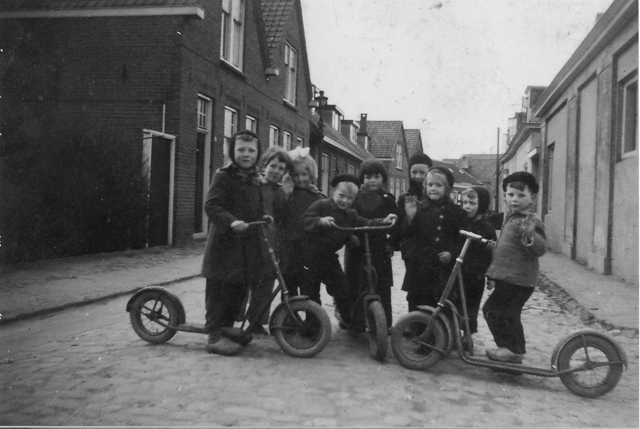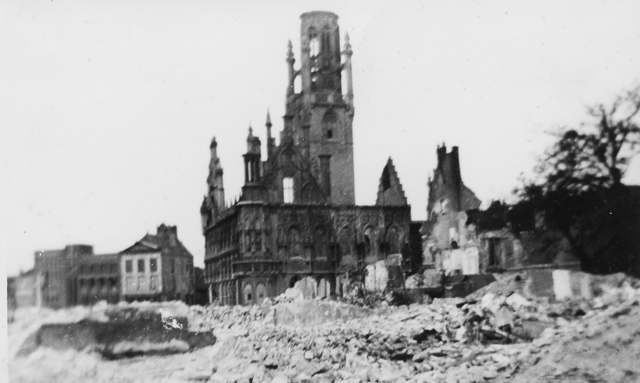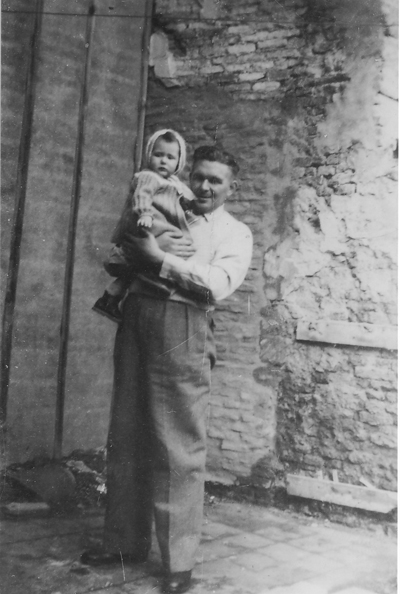"The Nazis had a price on Father's head that was second only to the bounty that they were prepared to pay for the capture of German-born Prince Bernhard, Queen Wilhelmina's son-in-law and commander in chief of the pitiful Dutch free forces." (Elisabeth Holdsworth)

Elisabeth and her posse courtesy https://www.australianbookreview.com.au/component/k2/131-february-2007-no-288/2369-an-die-nachgeborenen-for-those-who-come-after.
Elisabeth Holdsworth grew up in the shadow of the Second World War. Born in 1949 in Middelburg, Holland, she was an only child, long wanted by her parents. Her mother, a Dutch Jew, was sent to work as young teenager for a prominent family in their hometown. Her father, a Dutch Christian, was a member of the prominent family.
Elisabeth's father lived underground during the Second World War as part of the Dutch Resistance. While he performed many heroic acts, he was never officially recognized for his role in helping to save Holland from the grips of the Nazis. "The Nazis had a price on Father's head that was second only to the bounty that they were prepared to pay for the capture of German-born Prince Bernhard, Queen Wilhelmina's son-in-law and commander in chief of the pitiful Dutch free forces."
Elisabeth grew up with a posse of friends who, dressed in their clogs, scrambled over the piles of war rubble. One day, her mother gave her a severe beating for playing in a field with hidden land mines. Her mother was prone to fits of rage, a result of her years in a Nazi concentration camp. Her husband's brother, Linus, had fingered her as the wife of a member of the Dutch Resistance and the Nazis took her away. The constant threat of them figuring out she was a Jew weighed heavily on her.

Middelburg after the bombing of May 1940 courtesy https://www.australianbookreview.com.au/component/k2/131-february-2007-no-288/2369-an-die-nachgeborenen-for-those-who-come-after
Middelburg was bombed so heavily by the Luftwaffe that the sky was sometimes completely black from the planes overhead. The Nazis flattened all of the buildings and there was nothing left suitable for a command post. This was the scene that Elisabeth's mother returned to upon being liberated from the concentration camp. There she was reunited with her husband.
Right after the war, Elisabeth's Uncle Linus was murdered and her father was questioned as to the whereabouts of his gun. He said that it must have disappeared during the war. Elisabeth said that while no one in her family actually said that her father murdered her uncle, the silence spoke volumes. While the Nazis were hated, a traitor was despised even more, especially one who fingered his own sister-in-law.
Elisabeth's father spent several years trying to repair the dikes which surrounded Middelburg, but his pleas fell on deaf ears. In 1953, the dykes collapsed and the region was flooded resulting in hundreds of deaths. A broken man, Elisabeth's father moved the family to Australia where he died soon after. Her mother died in a car accident there in 1975.
Note: Read Elisabeth Holdsworth's Calibre Prize 2007 essay "An Die Nachgebroenen: For Those Who Come After" at https://www.australianbookreview.com.au/component/k2/131-february-2007-no-288/2369-an-die-nachgeborenen-for-those-who-come-after.

Elisabeth and her father courtesy https://www.australianbookreview.com.au/component/k2/131-february-2007-no-288/2369-an-die-nachgeborenen-for-those-who-come-after.
No comments:
Post a Comment